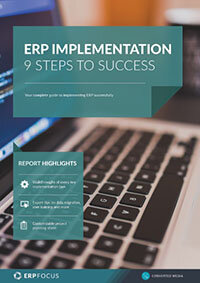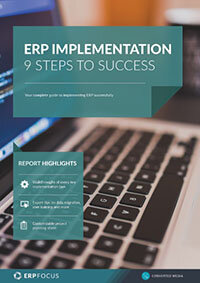Selling ERP Internally
There is a paradox about selling the benefits of an ERP implementation to senior fund holders within an organization. The paradox is that even though the benefits of ERP are real, those benefits cannot be accurately articulated to executives and decision-makers, if they have never lived in an ERP environment. The problem is analogous to accurately describing the taste of a banana to someone who has never eaten one.
Who Needs ERP? Not Me
Why can’t the benefits be easily explained? There are lots of facets to this question, but at the heart is executive ego. This is not executive ego in terms of ill-advised arrogance; this is the positive part of executive ego, and it allows a leader to confidently chart a bold path through unknown terrain. But that same positive ego blinds people to the benefits of ERP. Few executives would readily agree that their chosen functional teams did not work together well, or that they were aware that their transactional reporting discipline was poor, or that a large amount of business dirt was routinely swept under the carpet, or that much of their business data was so stratified as to be misleading. If you tell a business executive that ERP is going to force the organization to address these things, he will not likely embrace ERP; he will tell you he does not have these problems. And the banana analogy above is meant to convey the certainty that every organization has these problems to some degree; it is only by going through an ERP implementation that you understand to what degree. Additionally, the problems above are very difficult to evaluate. What is the cost of poor transactional reporting? Of lack of effective teamwork?
Finding the Levers
Hence the paradox, and the quasi-ethical sales pitch. Since there is no consensus about what ERP is going to help with, and it couldn’t be effectively valued anyway, let’s talk about those things that are easier to understand and easier to apply value to. Business dashboard? No problem. Real-time business information? No problem. Inventory reduction? No problem. The question of ethics enters into the discussion only because of the misleading time frames people allow to be inferred. For any wish list item, the executive hears “No problem (on day one)” and the seller means “No problem (eventually)”. If the seller never corrects that expectation, then everyone assumes that hard dollar benefits list will begin accruing on day one.
Responsibility for selling an ERP system internally is not an easy position to put anyone in. Once the seller crosses the line, and accepts that “the end justifies the means”, the gap between what ERP delivers on day one and what it is promised to deliver on day one grows rapidly.
You’ve got to find an acceptable comfort zone.
Free white paper

ERP Implementation: 9 steps to success
The 9 proven steps you should follow when implementing ERP



